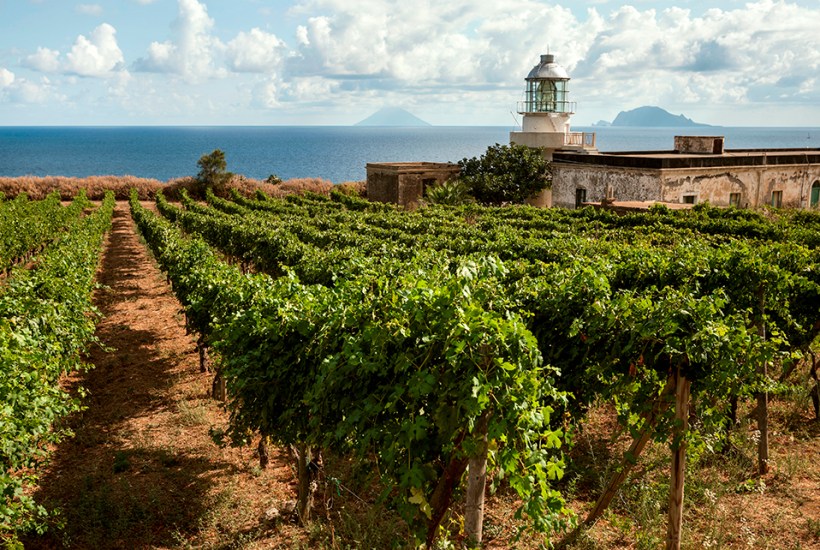Lauren Aimee Curtis, born in Sydney and recently named one of Granta’s Best of Young British Novelists, sets her intriguing second book on the Aeolian island of Salina in the late 19th century, when the arrival of phylloxera destroyed the island’s vines and economy, prompting mass emigration. These facts are easy to deduce, especially with the clarification provided in the author’s note, but in the novel itself Curtis names the island ‘S’ and the time becomes ‘that spring, when the men arrived’. She entices us into the mythical realm of not-quite history.
Part One is narrated by Giulia, looking back to when she was ten years old and telling her story to a ‘professor’ who has written a book. She chides him for being ‘obsessed with the aphid’ and missing the human side of the island’s story:
There is no mention of the shipmaster in your book, nothing about our village. There is nothing about the men who arrived on our island in the spring before the vines began to die.
These portentous men are prisoners, put under the control of the shipmaster’s sons and summoned by a trumpet call at the end of each day to be counted. Giulia describes being with her older sister Giovanna and throwing rocks at the men while they are swimming ‘because we feared them. But we also found their presence oddly thrilling.’ It’s no surprise that the prisoners – titillatingly alien and far more visible than phylloxera – become scapegoats when the vines begin to fail.
Another man visits S, prompting more ambivalent reactions among the inhabitants, and Part Two switches perspective to this ‘archduke’, a reimagining of the Austrian explorer Archduke Ludwig Salvator. Part Three is told by Giovanna, now in Australia, trying to recall for the professor her gruelling departure from the island after its economy collapsed. In this final section, Curtis emphasises her theme of memory’s fragility and fallibility, especially when someone else speaks for you.
Strangers at the Port is both a fascinating delve into the small, personal stories sacrificed to the grander sweep of history and a provocative creation of a fable for our times. The author succeeds in conjuring the minutiae of island life, with nicely realised details such as the pumice quarry, where, ‘on sunny days, the heat from the rock was like a flame licking our backs’, while also creating in S something of an every-island: its change of fortune from bountiful haven to wasteland a pattern with which we will become increasingly familiar, along with the associated desperate emigration. As Giulia ominously notes: ‘Sometimes I look back at my childhood and see forewarnings of what was to come.’
Got something to add? Join the discussion and comment below.
Get 10 issues for just $10
Subscribe to The Spectator Australia today for the next 10 magazine issues, plus full online access, for just $10.
You might disagree with half of it, but you’ll enjoy reading all of it. Try your first month for free, then just $2 a week for the remainder of your first year.









Comments
Don't miss out
Join the conversation with other Spectator Australia readers. Subscribe to leave a comment.
SUBSCRIBEAlready a subscriber? Log in